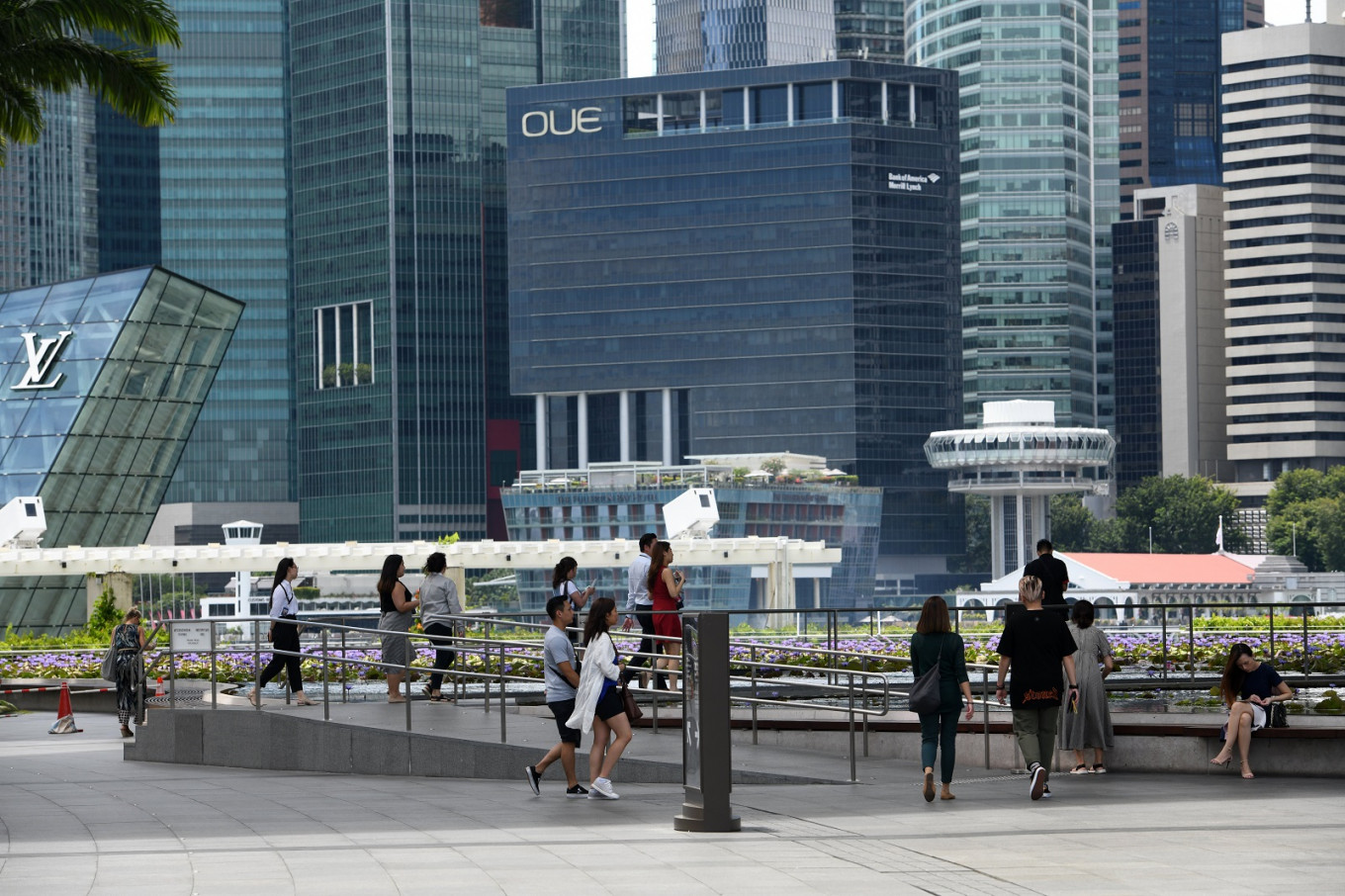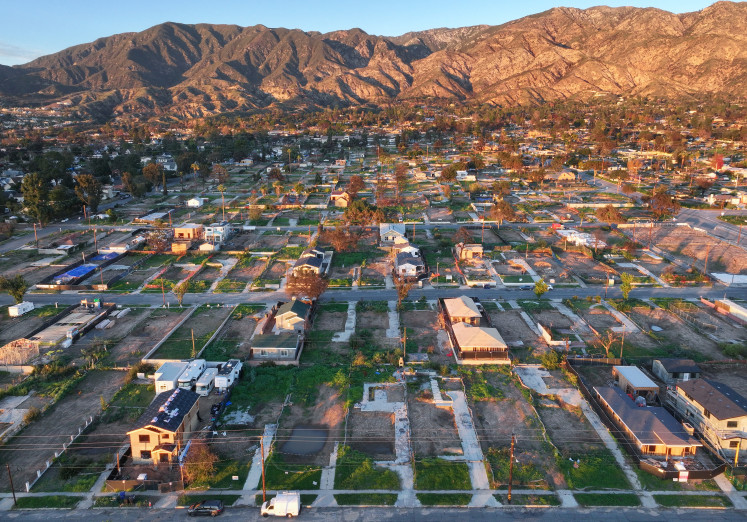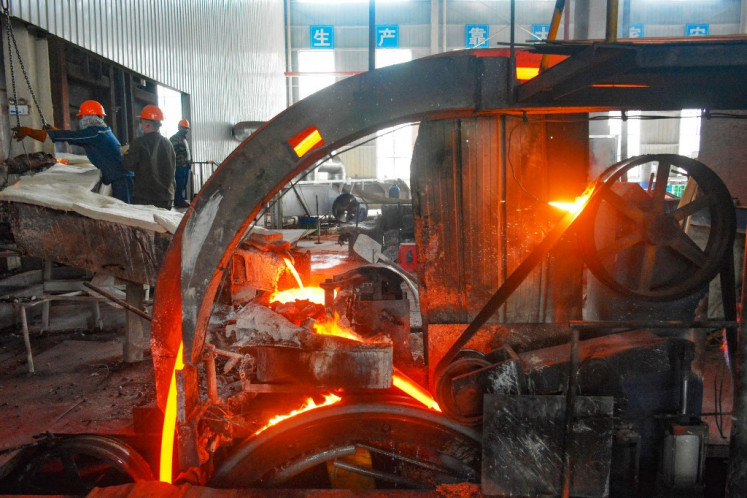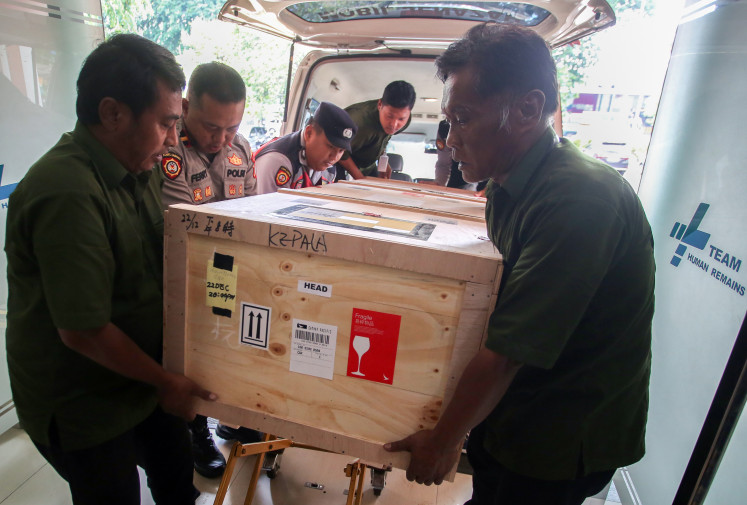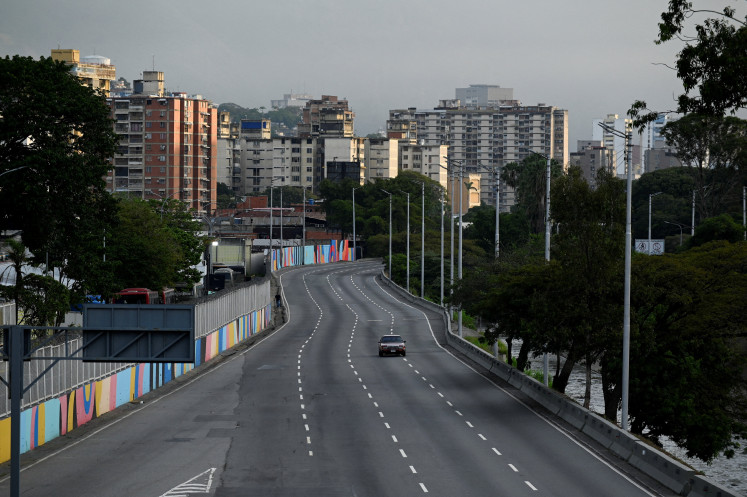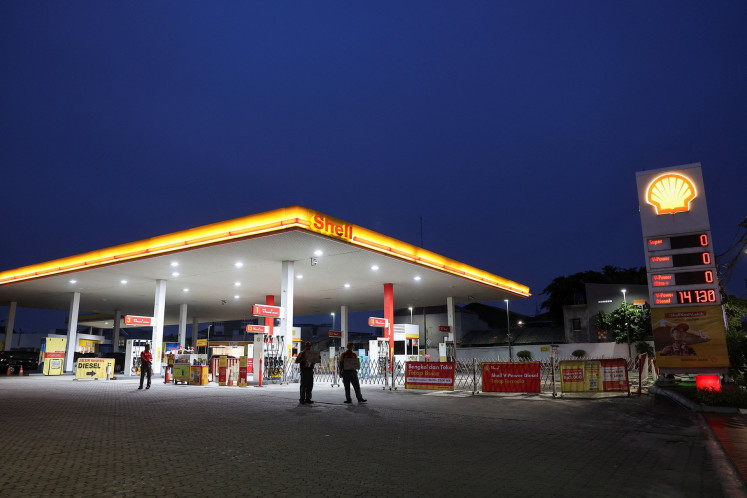Popular Reads
Top Results
Can't find what you're looking for?
View all search resultsPopular Reads
Top Results
Can't find what you're looking for?
View all search resultsHow businesses can survive the COVID-19 pandemic
The COVID-19 pandemic allows us to observe a new pattern of behavior in the business world: a blurring of the boundary between business and the society and particularly a deeper integration of public, environmental and commercial (PEC) value orientations.
Change text size
Gift Premium Articles
to Anyone
T
he COVID-19 pandemic has caused serious economic damage across the globe. The biggest but often unspoken victims of the pandemic are businesses. Businesses – that used to live by the paradigm “the only social responsibility of a business is to make profit” – until recently began to recognize that their priorities must change if the human species and the planet are to survive for the longer term.
The pandemic exposes the vulnerabilities of the trickle-up neoliberal capitalism that many social movements, from Occupy Wall Street, Indignados, to Extinction Rebellion, have been trying to convey to the business world.
The clear message of this pandemic is that businesses must embrace a new paradigm that maintains a good balance in the pursuit of public service, environmental and commercial goals. “Shareholder value” can and should give way to “public and environmental value” as businesses’ reason for existence.
What is the point in creating wealth through business when health, environmental and social crises can easily push a business out of business within weeks, as many of us have witnessed in many countries recently?
Short-term focus in measuring the performance of a company and that of a chief executive officer can and should give way to “sustainability orientation”. That is, the extent to which a company can sustain over the long run and maintain a good balance between public service, environmental and commercial performance simultaneously.
The intellectual roots of this new paradigm can be traced back to the rise of corporate social responsibility (CSR) in the 1970s and 1980s. But CSR has been criticized by many for being mere lip service, a small add-on activity of a business and as detached from a business’ core business model. Not surprisingly many experts question the true value of CSR for society and the environment. What emerged later were social entrepreneurship, business for the bottom of the pyramid, sustainable entrepreneurship and circular economy movements in the post millennium.
The COVID-19 pandemic allows us to observe a new pattern of behavior in the business world: a blurring of the boundary between business and the society and particularly a deeper integration of public, environmental and commercial (PEC) value orientations. The PEC value trilogy is likely to be a new normal and the only way for businesses, the global economy and the planet to continue to grow sustainably, and to mitigate future pandemics.
In our months-long archival analysis of more than 200 published news reports on what companies have done in response to the COVID-19 pandemic, we found ample evidence that companies in Asia, America, to Australia/Oceania have embraced the PEC value trilogy. Below are some key patterns observed.
Most big companies repurpose their expertise to pursue the three values simultaneously. They “make do” and leverage what they already have and/or are good at doing (their expertise) to help take part in tackling COVID-19 such as participating in manufacturing face masks, haze mats or hand sanitizers that are currently in short supply – the kind of activities that are new to them.
Louis Vuitton, Prada and Gucci, for example, repurposed their production sites in France to produce hundreds of thousands of face masks. Tent Craft, an event tents company has leveraged its expertise in custom fabrication and large format printing to produce pop-up mobile infirmaries and drive-through tents for COVID-19 screenings. Many breweries (e.g., InBev, Carbon Six in NZ) transformed their distilleries in sites that produce hand sanitizers and disinfectants.
Other companies have utilized spare capacities to cocreate value with partners. Social distancing in some ways creates spare capacity in many companies in terms of manpower and production capacity.
Companies have made the best use of their low capacity to cocreate value with potential partners in a win-win fashion. For example, Air Asia launched the SOS (Save Our Shops) campaign to enable small e-merchants to sell products with zero commission and listing fees on the airline’s website OURSHOP. Qantas and Air New Zealand, for example, have repurposed their passenger fleets for cargo flights to deliver essential medical supplies. Hotels in Hong Kong have transformed their low capacity into COVID-19 quarantine centers.
Companies also comply with the government’s orders or support government recovery efforts. This refers to businesses that respond to the government’s request or call for tender as part of the government’s policies in dealing with the pandemic. For example, General Motors and 3M have produced essential products (e.g., ventilators and face masks) in response to US President Donald Trump’s tweet. In response to the Australian federal government’s call for businesses to be involved in tackling COVID-19, a consortium of local companies led by Grey Innovation took the plunge to produce ventilators. In Thailand, local face mask manufacturers have increased their production to meet surging demand but follow the selling prices set by the government.
The COVID-19 moments are opportunities to innovate and break the existing frames of doing business. Companies have embraced new ways of thinking and new business practices that are not necessarily consistent with the “business as usual” practices. For example, Hilton is collaborating with Lysol and Mayo Clinic to deliver a new industry-defining standard of cleanliness and disinfection in Hilton properties for guests during and after COVID-19.
Biermi, an online platform, is seeking to help many large and small US beer producers stay in business during the pandemic by helping customers find breweries near their neighborhood and conveniently order beer from them. Columbian fashion retailer Maaji has entered a new business selling protective hoodie masks and long jackets with face protection using materials made from recycled PET bottles.
***
Yanto Chandra is an associate professor at the School of Health and Social Sciences, The Hong Kong Polytechnic University, Hong Kong, and director for the Centre for Social Policy and Social Entrepreneurship. Fandy Tjiptono is a senior lecturer in marketing and international business at the Victoria University of Wellington. The views are personal.

